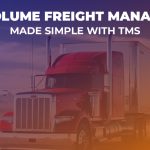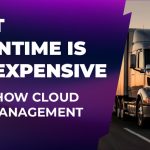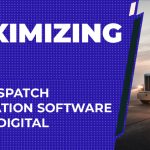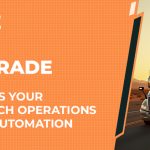
What Is a Transportation Management System?
For short-haul bulk commodities trucking businesses, a transportation management system (TMS) is a single platform that facilitates cargo’s arriving and outgoing movement. Perhaps you’re in the market for TMS software but don’t know where to start. Maybe you believe that implementing a fresh new TMS for your company at this time would be prohibitively expensive. Maybe you already have your system in place, or you don’t believe you require a TMS at all.
Whatever your objection, don’t let a lack of knowledge keep you from evaluating how a TMS could help you develop and optimize your trucking company.
Why Use a TMS in the First Place?
Simply put, without a TMS, your entire hauling company may fail to operate at peak efficiency.
Drivers may not get jobs due to missed calls or texts, causing their routes to take longer to finish than they should. Lack of real-time visibility for your back-office team could result in erroneous reporting or missing data altogether. These inefficiencies will bog down every area, producing conflict among team members, clients, and contract drivers. A disgruntled team and a disorderly operation are expected outcomes of not implementing a TMS.
What are the Benefits Of Using a TMS?
- Fewer or even complete removal of time-consuming manual operations saves time and reduces stress.
- For you and your customers, improved data security and management
- Operational costs and travel times are reduced.
What are the top Transportation Management System (TMS) software packages for 2022?
To assist buyers in their TMS selection process for modernizing their supply chain technology, we want to be as open and transparent as possible about the various TMS software options to figure out which system is the best fit for them is no one-size-fits-all solution.
Let’s go over the list and then have a quick chat about choosing a TMS for your needs.
Top 10 Transportation Management Systems (TMS)
- 3Gtms
- Cloud Logistics
- Descartes
- Blue Yonder
- Kuebix
- MercuryGate
- Oracle
- TMC
- Transplace
- TMS-Digital
What Transportation Management System (TMS) is suitable for me?
The appropriate transportation management system for you will be determined by the complexity of your supply chain, as well as your overall difficulties and objectives. An ERP or a stand-alone transportation management system may be sufficient (regional, small, static network, few systems, few sales channels, and order types).
Suppose you need to share order data across a network of partners, such as various suppliers, warehouses, carriers, and forwarders. In that case, you’ll need a more dynamic system with flexible, adjustable business rules to suit dynamically changing networks and transportation and fulfillment models.
You could also want multi-modal and container, pallet, and parcel assistance, as well as access to a broad carrier network, competitive pricing, thoughtful planning with warehouse operations, and multi-modal and container, pallet, and parcel support. A holistic, multi-modal TMS will be the most acceptable transportation management solution for large, frequently worldwide enterprises.
What Does TMS-Digital Offer?
Our cloud-based TMS system, The TMS-Digital, sets the bar for transportation management software for complete functionality and ease of use.
Even though this is an out-of-the-box solution, our TMS-Digital adaptable software modules are customized to your individual company needs, providing solid capabilities to manage your fleet(s) better:
- Dispatch: to notify and update your dispatchers on the status of your fleet.
- GeoTrack: uses real-time GPS to track shipments and optimize pick-up/drop-off routes.
- E-ticketing: this allows you to maintain all of your ticket information in one spot, eliminating the need for paper.
- ELD: To conveniently capture your drivers’ hours of service, use an electronic logging device (ELD) (HOS)
- Invoicing: charge your customers automatically from anywhere.
- Driver Payroll: To develop fully customizable payroll contracts.
- Business intelligence (BI): to make data analysis and reporting more efficient and accessible from any device.
- 3PL: It stands for third-party logistics carriers, and it refers to the process of outsourcing your excess workload to them (in or out of network).
- Order Manager: to assist your customers in placing and managing orders in real-time, regardless of where they are.
- Customer Portal: to aid supply chain management by allowing carriers, shippers, and other partners to observe inventory movements simultaneously.
Our tailored integration and software adoption procedure, which is carried out with the assistance of our Onboarding team, streamlines all of your work processes and promotes scalability as your trucking company expands.
To top it off, your data is safe and secure on our servers, and it can all be accessed and controlled from a single, centralized location in the cloud. You’ll never have to worry about data loss or time-consuming maintenance again!
Conclusion
A Transportation Management System (TMS) is a critical tool in every business’s arsenal. A TMS is necessary to stay up with the ever-changing transportation technology environment. Although the savings may be slow at first, the incremental benefits will snowball into improved business processes and fulfill your customer’s expectations.
We tried to provide you with an overview of the concept of transportation management systems in this post and some of the features and functions that modern TMSs provide. If you’d like to learn more about the tactics and approaches TMS-Digital use to implement TMSs, please get in touch with us.




